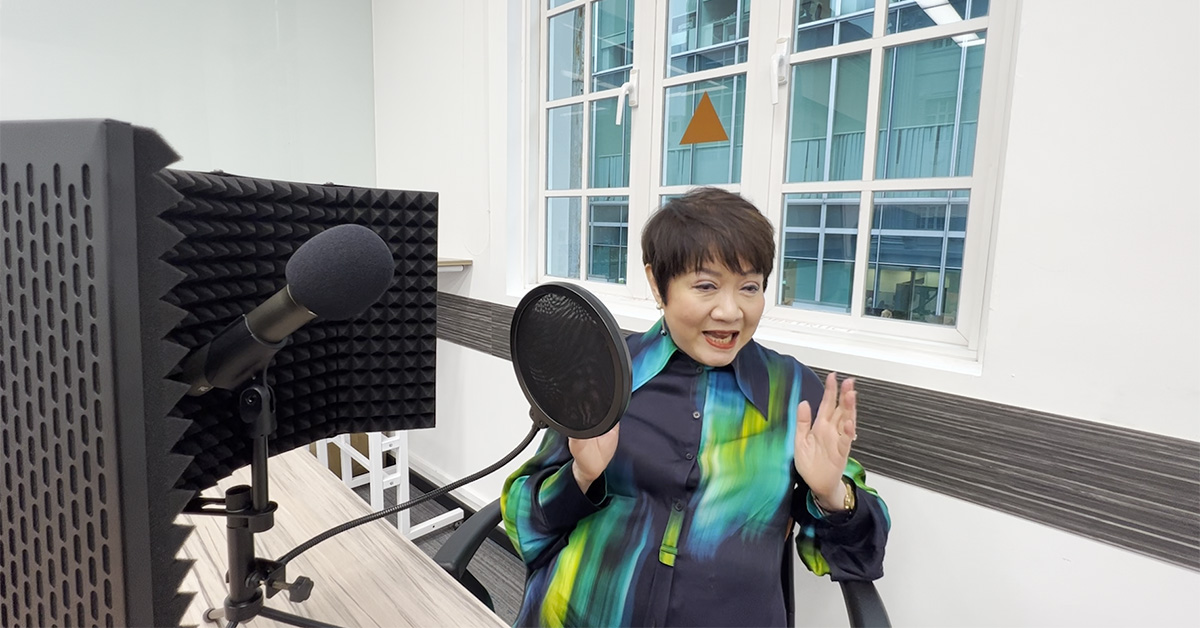
Most of us know that women, on average, tend to live longer than men. The reasons for this are that women tend to observe healthier diets, pay more attention to their health, and are less likely to adopt harmful habits like smoking and drinking. Thus for long-term financial security, women should be active in retirement planning.
According to the Department of Statistics in 2023, the life expectancy for male residents in Singapore at birth was 80.7 years, while that for female residents was 85.2 years.
In other words, women can expect to outlive their male partners by an average of five years. For the sake of illustration, say someone thinks they’ll need around $4,000 per month in retirement, or about $50,000 a year. Then for an additional five years’ worth of life span, they’ll require at least $250,000, if not more.
The amount needed per year in retirement would of course vary according to one’s lifestyle, medical needs, etc. However, this still places greater pressure on women to accumulate sufficient money for retirement, which in turn means there is greater urgency for women to start investing and retirement planning as early as possible.
Additionally, research has shown that women are more likely to be hit by “curveballs and cannonballs” life throws at them that may put them off track and disrupt their retirement financing.
Advertisement
According to recent US research from financial services firm Edward Jones and aging research provider Age Wave, a majority of female retirees, 81%, have experienced at least one such disruptive and challenging event, versus 69% of men.
The most common disruption for both sexes is having a spouse or partner pass away at 77%. Women are almost twice as likely to be widowed, according to the research, which isn’t surprising when you consider women’s greater longevity.
Retirement planning more crucial than ever for women
Unfortunately, surveys on financial wellness conducted by financial institutions consistently suggest that women are less financially prepared for retirement compared to men – for example, a 2018 HSBC study found that 41% of working-age women versus 31% of men in Singapore either don’t know how much they are saving for retirement or haven’t started saving at all.
Furthermore, only 32% of women rated themselves as being well-informed on financial matters versus 49% of men.
This is a shame because studies have also shown than women tend to make better investors – in a 2021 study for example, Fidelity reviewed the investment patterns of five million customers over the prior 10 years. It found that on average, female retail investors consistently outperformed their male counterparts by an average of 0.4% every year.
This may not sound like much, but when compounded over many years, this is still meaningful. For example, someone who invested a million dollars for 25 years at 7.4% would earn $530,657 more than an investor who netted returns of only 7%.
Furthermore, it isn’t just the average woman who is a better investor than the average man, this outperformance extends to the professional realm.
The tendency of women to outperform is not only seen in retail investors,
writes Dr. Daniel Crosby in his book, The Laws of Wealth.
"Female hedge fund managers have consistently and soundly thumped their male colleagues as well."
Different approaches to investing
According to an April 2023 Forbes article, data compiled by a “large discount brokerage” company on more than 37,000 investor households showed that men traded their accounts 45% more than the ladies. Also, men tend to have unwarranted overconfidence in their investing know-how.
"In addition, the single guys traded an eye-popping 67% more than single women… Men trade more than women. By trading more, men hurt their performance more than do women…Overconfidence leads to overactivity which leads to underperformance".
Fund manager Nancy Tengler in her book “The Women’s Guide to Successful Investing,” which was first published in 2014 and has been recently updated with a second edition said women are better investors than men because they are often less benchmark driven, willing to do more research and are open to changing their minds.
Change in mindset for retirement planning
The main reasons often cited for either not having started retirement planning or investing early are either a lack of knowledge or that financial matters within the family tend to be the domain of the male partner, or both. This is true not just of Asian societies but also those in the West.
Given that women tend to earn less than men; take more time out of the workforce; will live longer on average but will retire earlier and can be expected to encounter higher health costs in retirement than men, this is troubling.
Women lacking competency in financial literacy face could run into serious financial difficulties later in life, such as assuming large credit card debt, defaulting on loans and experiencing problems in managing income, taxes and investments.
The fact that women are more likely to provide caregiving services to aged parents adds to the financial burden and increases the likelihood of inadequate funds in retirement.
Moreover, the OECD in its 2013 report Addressing women’s needs for financial education noted that women are likely to take primary responsibility for childrearing, to make important and daily decisions about the allocation of household resources, and to have a major role in the transmission of financial habits and skills to their children.
Hence, they need to have adequate financial skills not only for themselves but also for future generations
noted the OECD.
These concerns are particularly relevant for Singapore, a society already grappling with problems brought on by an ageing population and a surge in the cost of living, partly aggravated by trade disruptions from geopolitical tensions and elevated inflation.
"A man is not a financial plan"
How to tackle this problem? Among the suggestions put forth by survey conductors are reframing how women think about retirement, consulting expert financial planners and building multiple sources of income through investing.
Stated differently, women should take responsibility for their own finances because as DBS puts it in a 5 March 2024 article, women should know “a man is not a financial plan”.
All this is sound advice, but what is required is basic financial understanding to start the ball rolling, especially if knowledge and confidence are lacking. As a start, I’d recommend attending the free lessons held by the Institute for Financial Literacy which is part of the Government’s MoneySense programme. Courses are structured along four pillars: Money Management, Insurance, Investing and Retirement Planning.
These lessons will provide a foundation on which to build for more sophisticated purposes. Once you’re gained a grasp of the basics, you can build on it for more advanced topics. There are also many educational articles on the MoneySense website that can aid you in your investing/retirement planning journey.
Other online resources can be helpful. Here are some finance bloggers and sites that also cover investment topics:
- Former banker Willie Keng has a site called the Dividend Titan breaking down investing insights
- Finance blog Seedly has useful comparisons on savings Interest rates, Singapore Treasury T-Bill rates
- The Smart Investor gives advice such as 'Reasons to invest in REITS rather than property', 'Blue chip stocks with Dividend Yields Higher than Your CPF Ordinary Account'
- Information on DollarsAndSense includes info on different financial instruments





